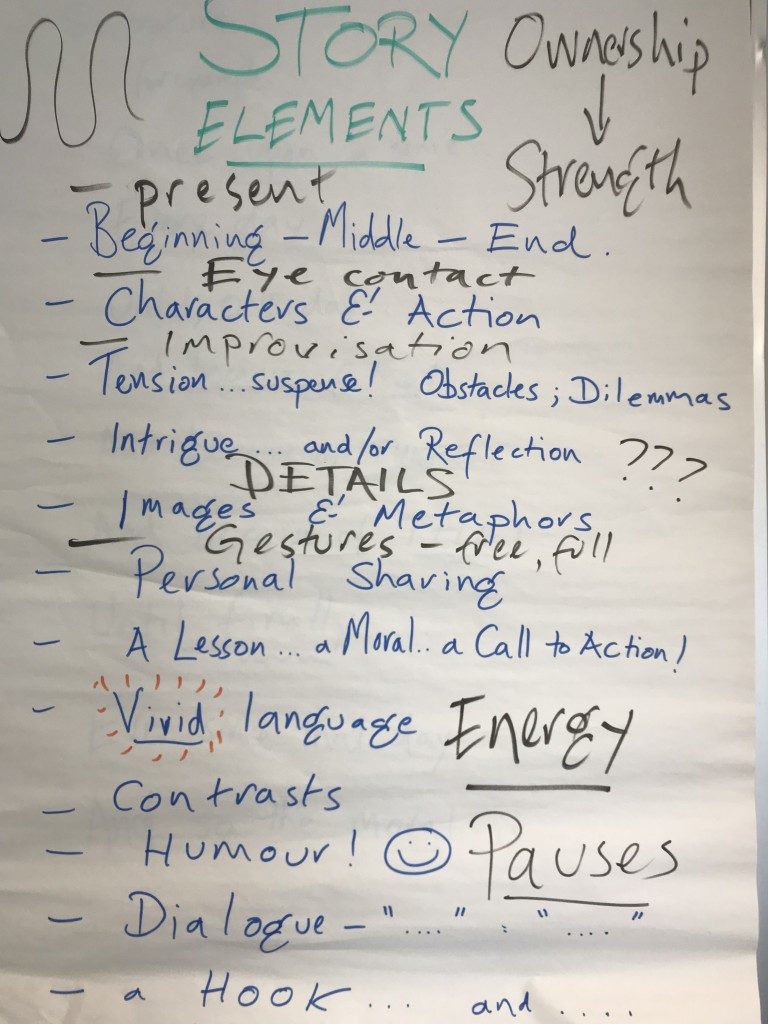Pretending to be authentic?
Home // Pretending to be authentic?
- Greg Orme
How developing acting skills will help you to make a bigger impact at work
I'm a businesswomen, not an actress!
Later that morning, I informed the group they were going to work with professional actors. They were going to practice telling stories that would help drive the vital changes needed in their business. During the coffee break Maria strode up to me. With a look of wounded incredulity, she hissed. “I’m a businesswoman, why are you asking me to become an actor?”. Turning away, she added: “You’re wasting my time. This exercise is pointless.”
Maria is not alone in being a compelling storyteller in a bar, but an uninspired presenter in the office. She’s also not alone in intuitively mistrusting the idea of ‘acting’ as a personal skill. This is a mistake. She is failing to benefit from the incredible power of storytelling. Research shows if you want to influence others, a good story has infinitely more impact than a boring, data-driven PowerPoint presentation.
Neuroscientists have found[1]‘Why Your Brain Loves Good Storytelling’, Paul J. Zak HBR OCTOBER 28, 2014 that when we’re told a character-driven story, with emotional content and colourful metaphors, it causes our brain to release a very special neurochemical called oxytocin. The same thing happens when we’re trusted, or shown a kindness.
She found that using acting skills involves using emotion as well as analysis, stories as well as data, your body and voice as well as your content. But, it’s not about becoming an actor. Or, pretending to be someone else. Quite the opposite in fact. Its about practicing how to allow your authentic self to appear at work. About being yourself, more, with skill.[2]The summary in the research underpinning ‘Why Should Anyone Be Led by You?: What It Takes To Be An Authentic Leader’ Harvard Business School Press, 2006 by Robert Goffee, Gareth Jones In Maria’s case this meant channeling her fluent bar-room persona into pivotal work situations.
So, what happened? At the end of the session Maria delivered a story to the group that provoked a prolonged round of applause. She made her point about the need for better collaboration quite brilliantly. And, the experience left a beaming smile of satisfaction on her face.
In our fast-changing world you’ll need more than ever to persuade the people around you to take a risk and try something new. Of course, you’ll need to know your stuff. You’ll need statistics. But people are never influenced by data alone. They are only ever convinced by what data means to them. The most effective way to get to that influencing moment is to wrap your evidence in a story.[3]This lovely phrase with thanks to my London Business School colleague Professor Niro Sivanathan

The creative techniques you can use are limited only by your imagination. In the embedded picture is a list of simple techniques we brainstormed in just ten minutes. They’ll be familiar from your childhood, as well as from the books and movies you love. How many could you use the next time you are trying to land a new idea, illustrate a problem, or shift opinion at work?
Whatever the number, if you want to live happily ever after in your career, develop your storytelling abilities. A well-told story stimulates engagement and trust. It captures a listener’s heart, by first stimulating their brain.
Do you agree with this argument? How does it relate to your life? If you like this article please do comment, like and share!
Related posts

Does Your Busy Culture Undermine Mental Health?
4 min read – As we move into the post-pandemic era, the ability to feel or imagine another person’s emotional experience will become even more important.

For Happiness In Tough Times, Be More Grateful
4 min read – As we move into the post-pandemic era, the ability to feel or imagine another person’s emotional experience will become even more important.

Caring Got Cool: Diverse, Remote Teams Make Empathy A Vital Skill For Managers
4 min read – As we move into the post-pandemic era, the ability to feel or imagine another person’s emotional experience will become even more important.
References[+]
| ↑1 | ‘Why Your Brain Loves Good Storytelling’, Paul J. Zak HBR OCTOBER 28, 2014 |
|---|---|
| ↑2 | The summary in the research underpinning ‘Why Should Anyone Be Led by You?: What It Takes To Be An Authentic Leader’ Harvard Business School Press, 2006 by Robert Goffee, Gareth Jones |
| ↑3 | This lovely phrase with thanks to my London Business School colleague Professor Niro Sivanathan |